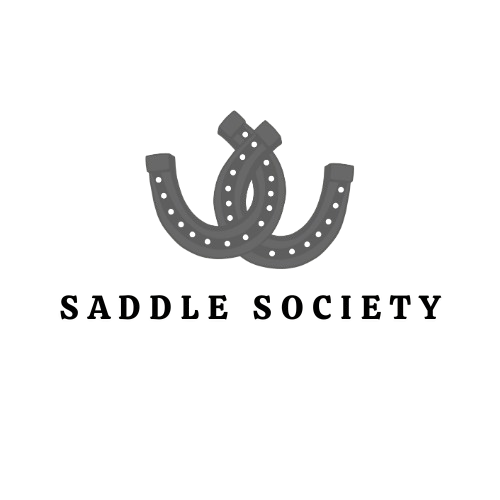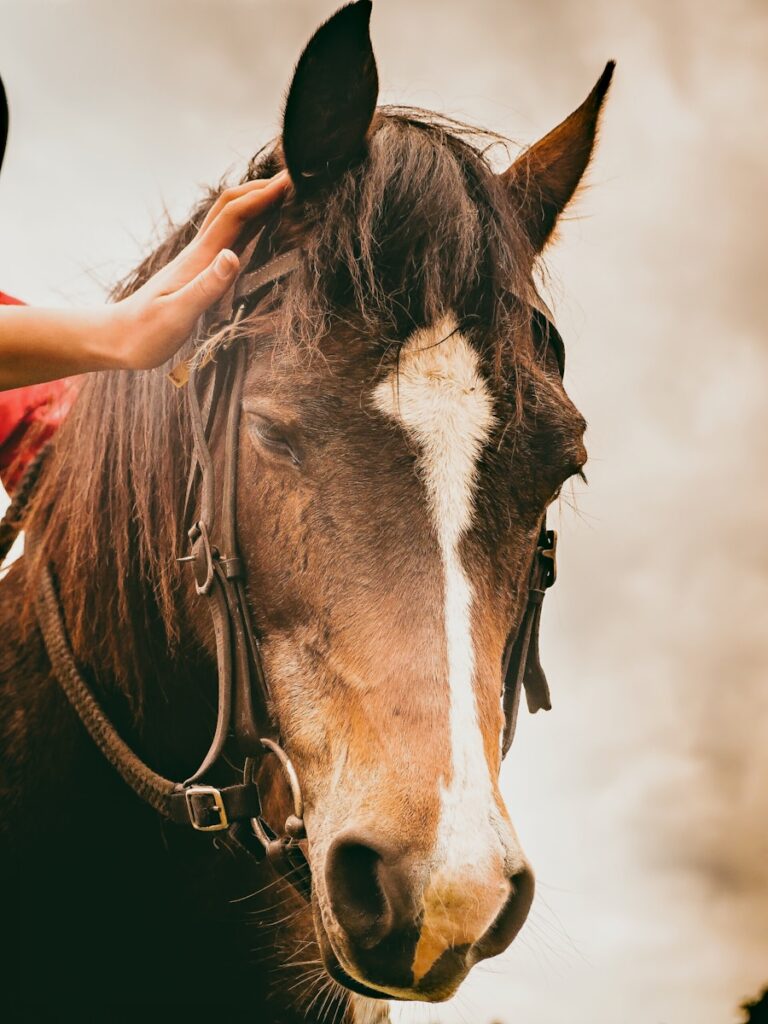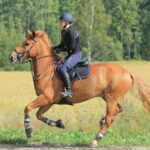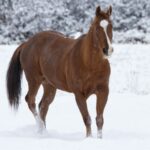Horses are remarkable athletes that put their heart and soul into competition, forming an incredible partnership with their riders through hours of training and mutual trust. When a horse performs well in competition, acknowledging their effort is not just a kindness—it’s an essential component of positive reinforcement training and relationship building. A thoughtfully chosen reward reinforces desired behaviors, strengthens the bond between horse and rider, and contributes to the horse’s overall well-being and motivation. Understanding how to properly reward your equine partner after they’ve given their all in the show ring can make a significant difference in their future performance and attitude toward competition.
Immediate Release of Pressure
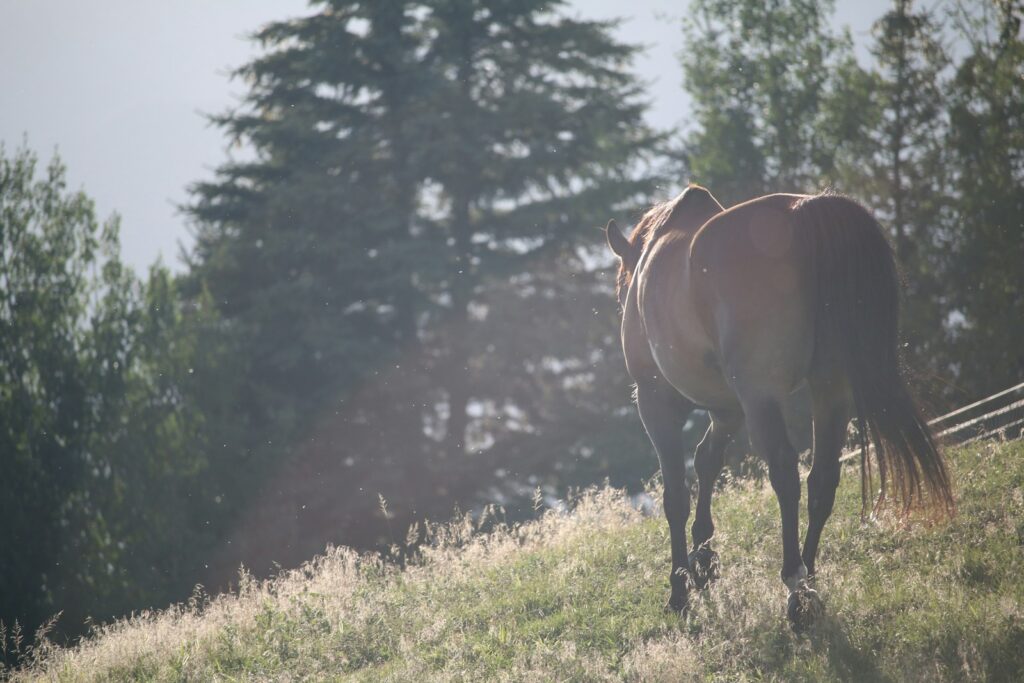
The most immediate and meaningful reward for a horse after competition is the release of physical and mental pressure. This begins the moment you cross the finish line, complete your dressage test, or exit the show ring by loosening the reins and allowing your horse to stretch their neck downward. A long rein walk after intense physical exertion gives your horse time to mentally decompress while their breathing and heart rate return to normal. This transitional period signals to your horse that their work is done and they’ve succeeded in their task. Horses naturally understand the language of pressure and release, making this simple action one of the most powerful rewards in your arsenal.
Verbal Praise and Physical Affection
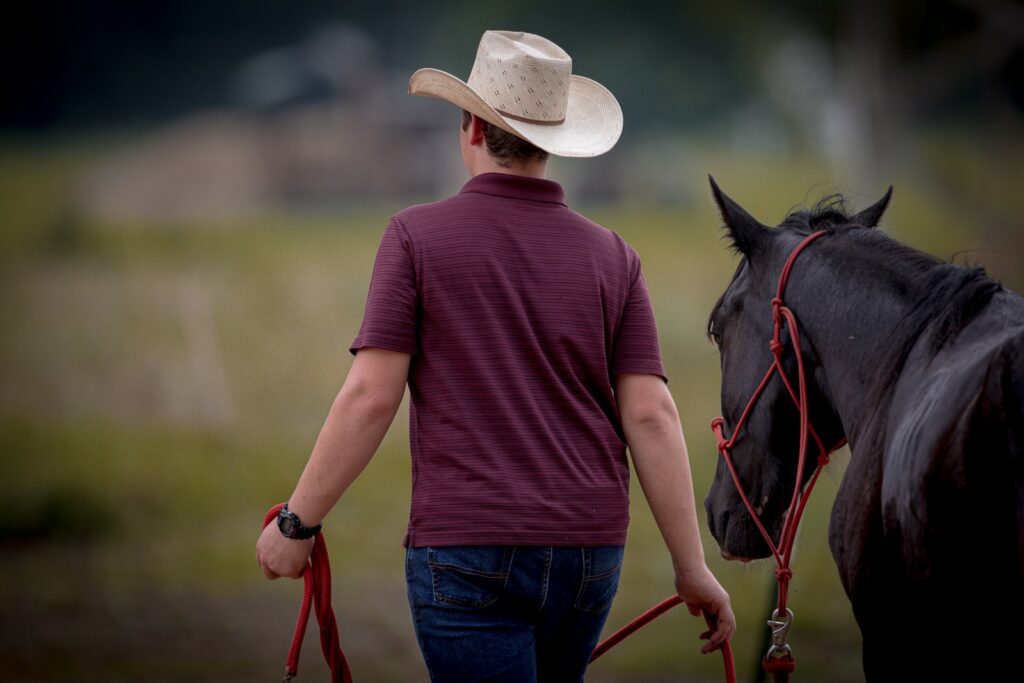
Horses are remarkably sensitive to human emotions and vocal tones, making verbal praise an effective rewarding tool. Using a consistent, warm praise word or phrase that’s reserved specifically for moments of excellence helps your horse associate that sound with a job well done. Combine verbal praise with appropriate physical affection, such as a gentle pat on the neck, a scratch at the withers, or stroking their face—wherever your individual horse most enjoys being touched. Some competition horses develop positive associations with specific types of physical affection during high-pressure situations, so pay attention to your horse’s body language to determine what form of touch they find most rewarding. Remember that timing is crucial—praise should come immediately after the desirable behavior for the clearest communication.
Food Rewards
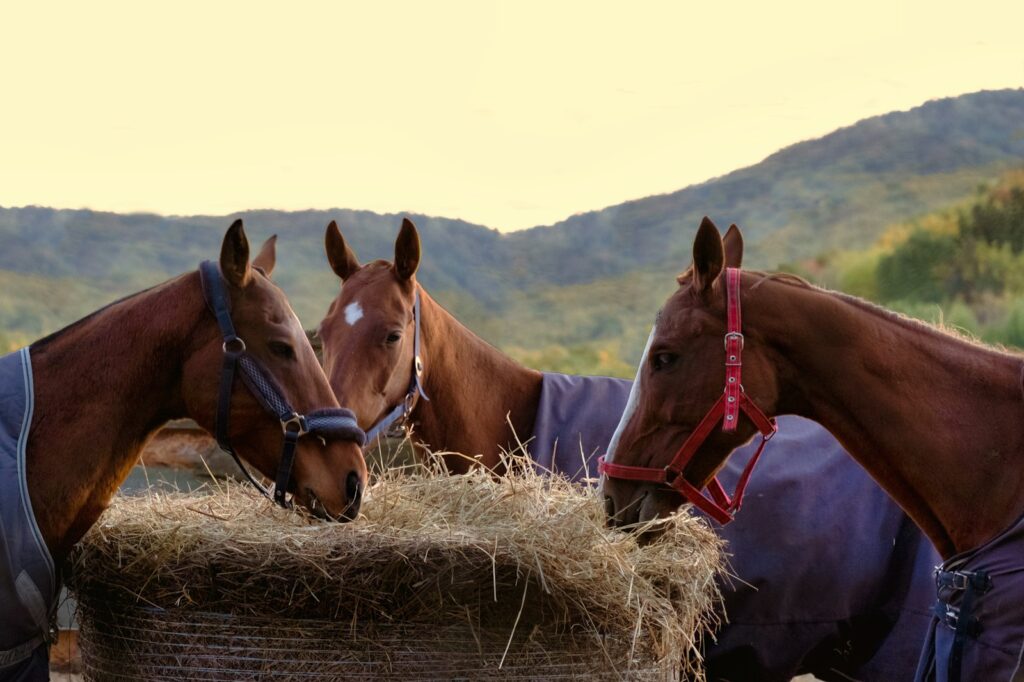
Food treats are powerful motivators for most horses and can be excellent post-competition rewards when used appropriately. Healthy options include small pieces of carrot, apple, commercial horse treats, or even a handful of their favorite grain. The key to using food rewards effectively is moderation and timing—offer small amounts after the horse has been properly cooled out and when they’re calm, reinforcing that good behavior earns good things. Some riders keep a small treat pouch attached to their belt specifically for competition days, allowing for immediate reinforcement after a good performance. Remember that some competition venues have rules about feeding horses in certain areas, so be respectful of regulations while still finding an appropriate moment to provide this highly valued reward.
Proper Cool-Down Procedures
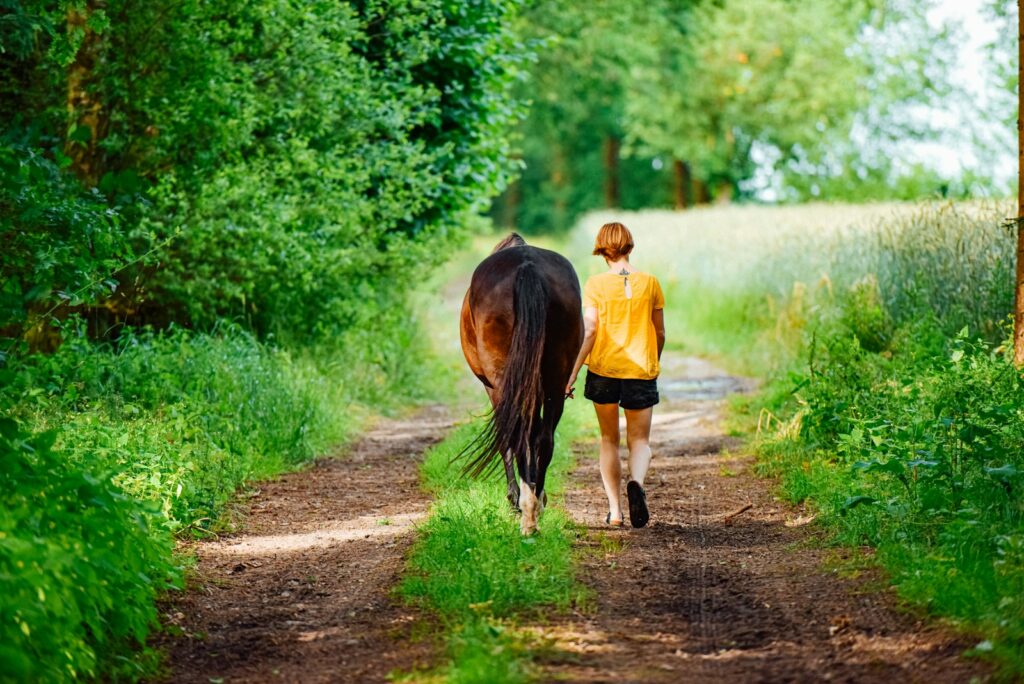
A thorough and careful cool-down is both a health necessity and a reward for your horse after competition. A gradual cool-down that includes walking on a loose rein for 10-20 minutes allows muscles to relax and prevents stiffness and soreness. This quiet time gives your horse’s cardiovascular and respiratory systems time to recover from exertion while providing mental decompression after the excitement and tension of competition. For many horses, especially those who enjoy their work but find competitions stressful, this peaceful transition period with their trusted human is deeply rewarding. Incorporating gentle stretches or allowing grazing during the later stages of cool-down (if venue rules permit) adds another pleasurable dimension to this essential post-competition ritual.
Relaxing Grooming Session
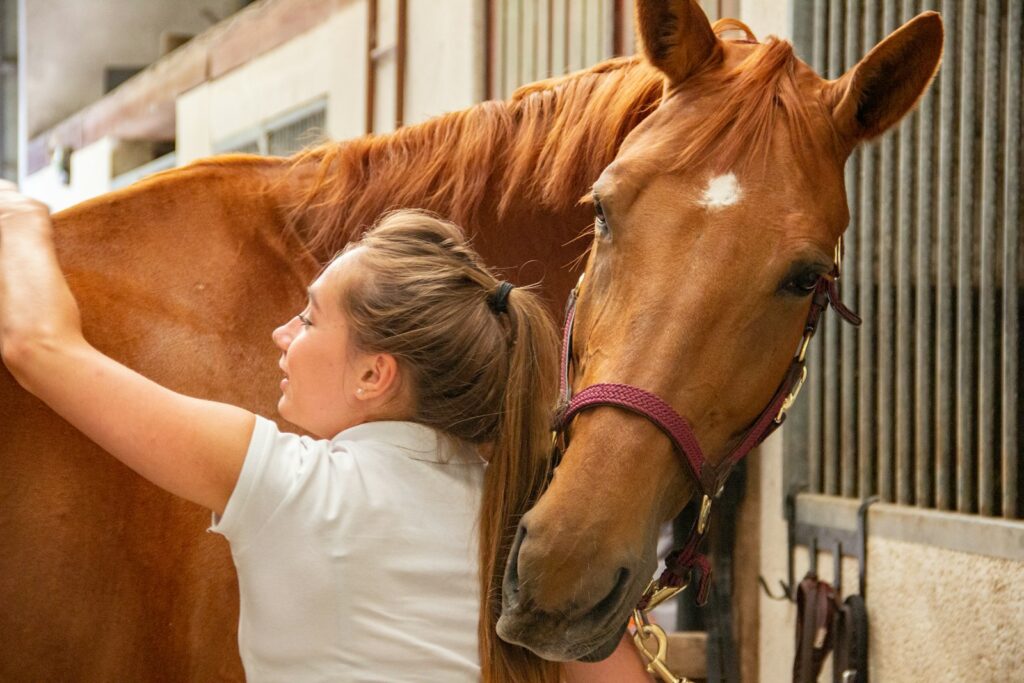
After cooling down, a thorough but gentle grooming session serves as both practical care and a rewarding experience for most horses. Remove tack completely and take time to groom with extra attention to areas that get sweaty under tack, helping your horse feel clean and comfortable after their athletic efforts. Pay special attention to your horse’s favorite grooming spots—many horses have specific areas they love having scratched or brushed, such as the chest, withers, or behind the ears. Some competition horses particularly enjoy a gentle curry massage to relieve muscle tension after exertion. This quiet bonding time reinforces your partnership while allowing you to check for any rubs, heat, or swelling that might need attention after competition.
Water and Electrolyte Replenishment
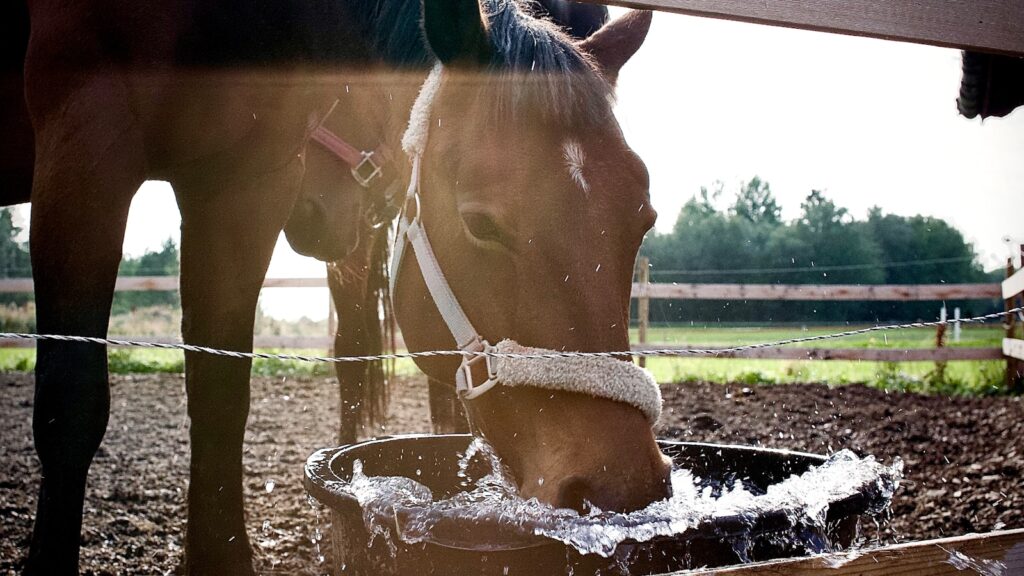
Offering fresh, clean water immediately after competition addresses a basic need that feels rewarding to a thirsty horse. Some horses are reluctant to drink in unfamiliar settings, so bringing water from home or using flavor additives they’re accustomed to can encourage proper hydration. Adding electrolytes (following your veterinarian’s recommendations) helps replace minerals lost through sweating during competition, supporting muscle recovery and preventing dehydration. Many horses enjoy the slightly sweet taste of electrolyte solutions, making this health measure doubly rewarding. For competitions in hot weather or those requiring significant exertion, some riders offer water with electrolytes during the cool-down phase and again after untacking.
Relaxation Time

Offering your horse unstructured downtime after a competition provides mental and physical recovery that many equine athletes deeply appreciate. This might mean hand-grazing in a quiet area away from the busy competition venue, allowing your horse to stand relaxed in cross-ties while you simply keep them company, or turning them out in a secure paddock to roll and stretch naturally if facilities permit. During this time, remove all equipment except necessary safety items, allowing your horse to feel unrestricted. This decompression period is particularly important for horses who find the competition environment stimulating or stressful, as it signals the return to normal, comfortable routines and expectations.
Massage and Bodywork
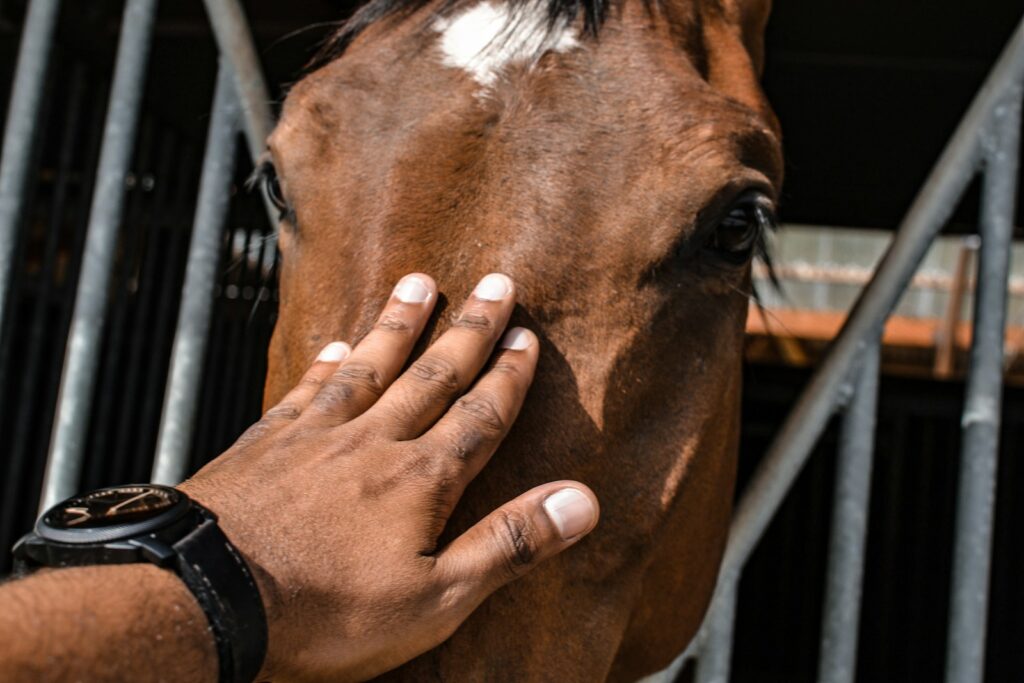
Many horses benefit enormously from gentle massage or appropriate bodywork after competition, finding it both physically relieving and mentally rewarding. Even basic techniques that riders can perform themselves—like gentle poll releases, leg stretches, or soft tissue massage along the neck and back—can help release tension accumulated during competition. For important competitions or particularly demanding events, scheduling a professional equine massage therapist to work with your horse after the event can be a worthwhile investment in their comfort and recovery. Regular incorporation of these techniques helps your horse associate the post-competition period with physical relief, turning the end of competition into something to look forward to.
Change of Scenery
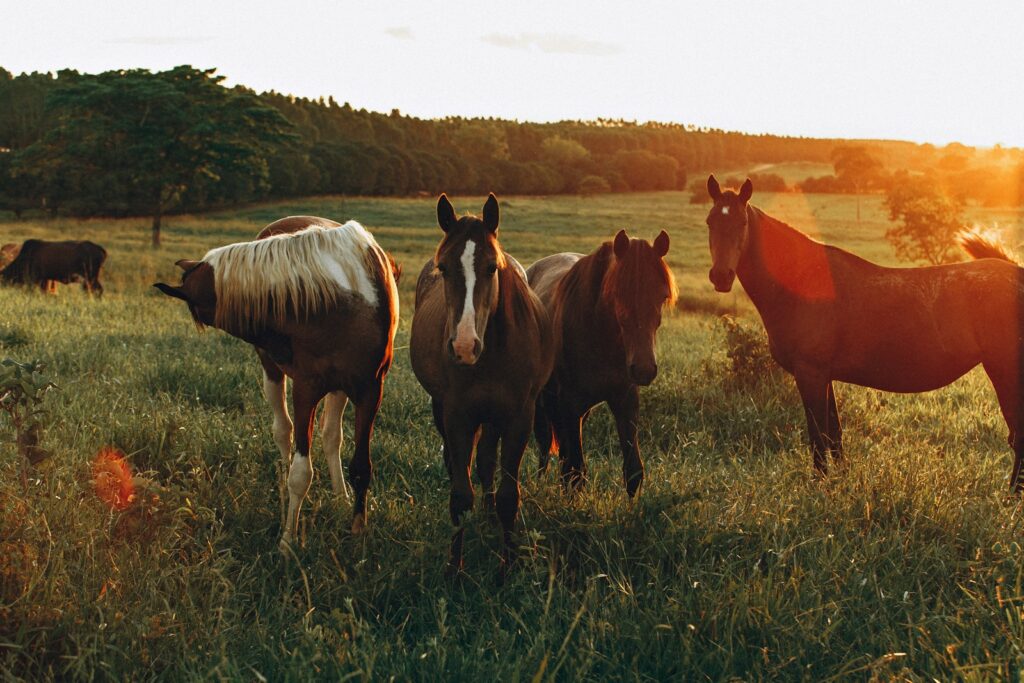
For horses that enjoy exploration, a change of scenery after competition can be mentally stimulating and rewarding. This might mean a quiet hack around the competition grounds, a leisurely walk in-hand through a scenic area, or trailer time to a nearby trail for a relaxed ride if competition regulations and timing permit. The key is keeping this activity completely low-pressure, focusing on enjoyment rather than training or performance. Many performance horses appreciate the mental break of doing something entirely different from their competition discipline, finding it refreshing and rewarding. This approach is particularly effective for horses who become arena-sour or develop anxiety about competition venues, as it creates positive associations with these environments.
Extra Attention to Comfort
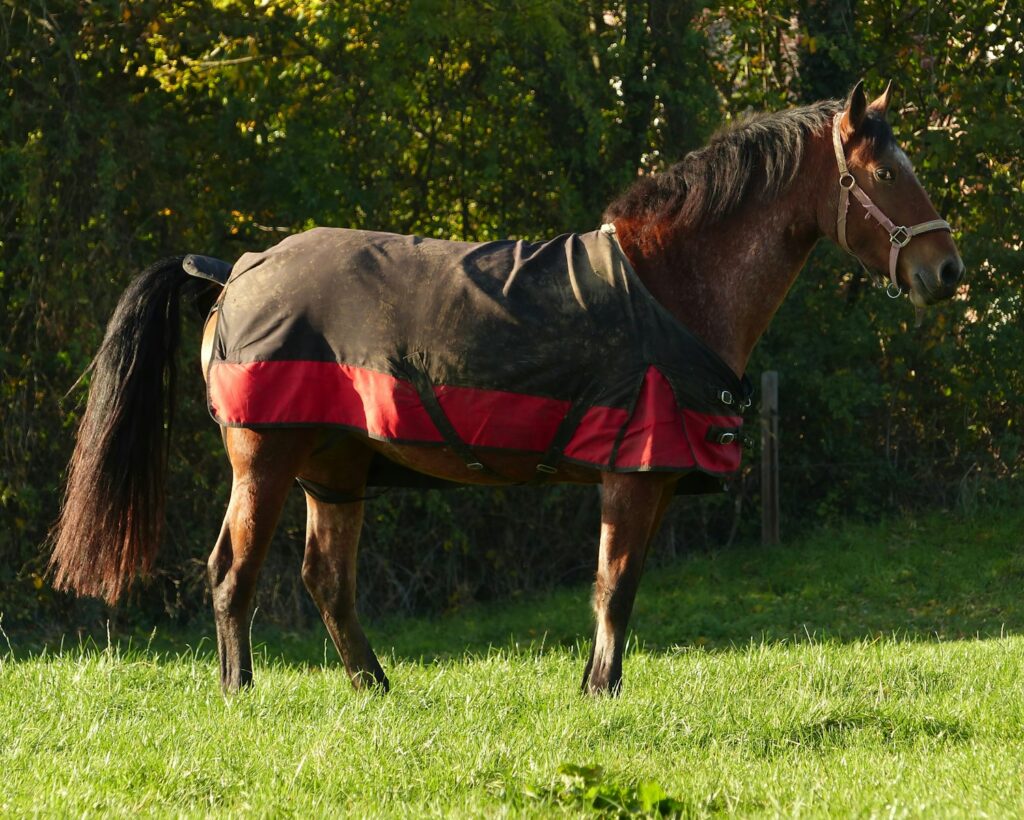
Special attention to your horse’s physical comfort after competition demonstrates your appreciation for their effort while ensuring their wellbeing. This might include applying cooling leg wraps if your horse’s legs tend to stock up after exertion, using liniment on hard-working muscles, or putting on a quarter sheet in cool weather during the cool-down phase. Some riders provide their horses with special competition-only equipment that enhances comfort, such as therapeutic blankets, magnetic boots, or specialized saddle pads. Taking extra time to ensure your horse’s stall or temporary housing is well-bedded, clean, and comfortable after competition shows consideration for their needs and contributes to faster recovery.
Break from Training
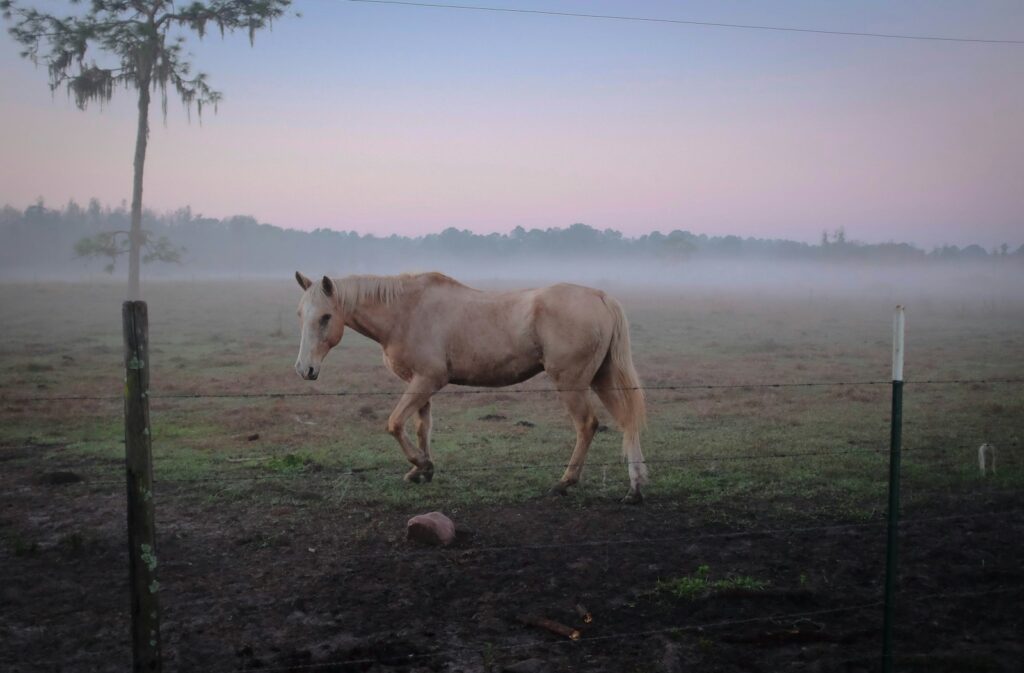
One of the most meaningful rewards for many competition horses is a scheduled break from serious training following a competition, especially after a major event or the conclusion of a competitive season. This might range from a single day of complete rest to several days of only light, enjoyable activity depending on your horse’s needs and the intensity of the competition. During this period, focus on maintaining your connection through pleasurable, low-stress activities rather than drilling or schooling difficult movements. Many top competitors incorporate these strategic breaks into their training calendars, recognizing that mental freshness is as important as physical conditioning for continued competitive success.
Understanding Individual Preferences
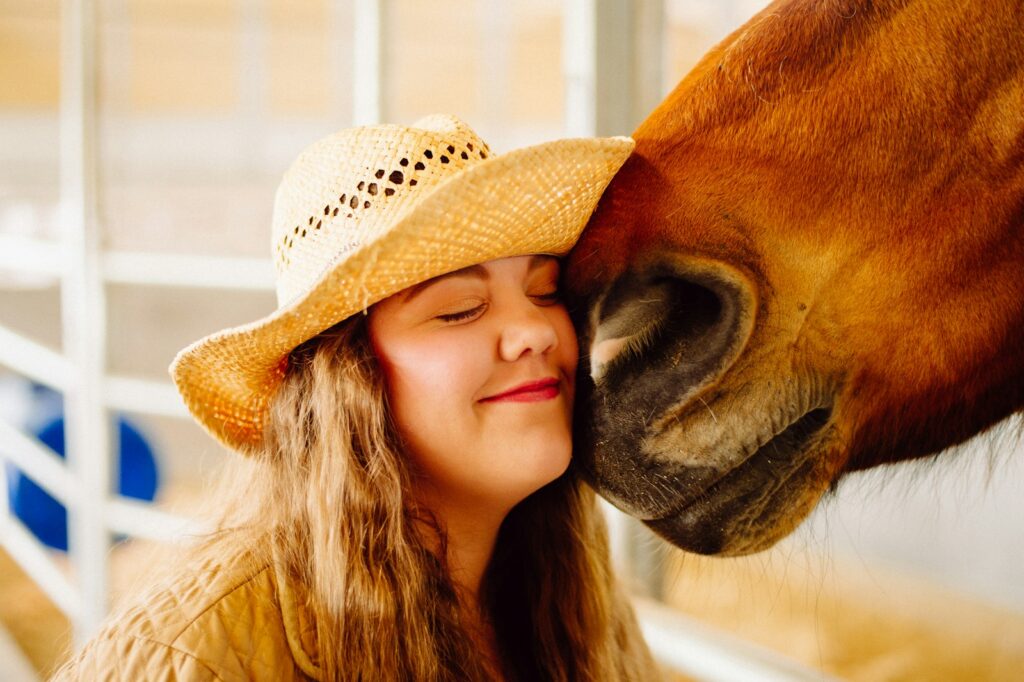
Perhaps the most important aspect of rewarding your horse effectively is recognizing and respecting their individual preferences. Some horses find food rewards highly motivating while others might prefer physical affection or the freedom to roll and relax. Observe your horse’s responses to different rewards over time, noticing which ones generate the most positive reactions through relaxed body language, bright expression, and engaged behavior. Be willing to adapt your reward system as your horse matures, changes disciplines, or develops new preferences. The most effective rewards are those that your particular horse genuinely values, which may be different from what works for other horses in your barn or what conventional wisdom suggests.
Creating Consistent Reward Rituals
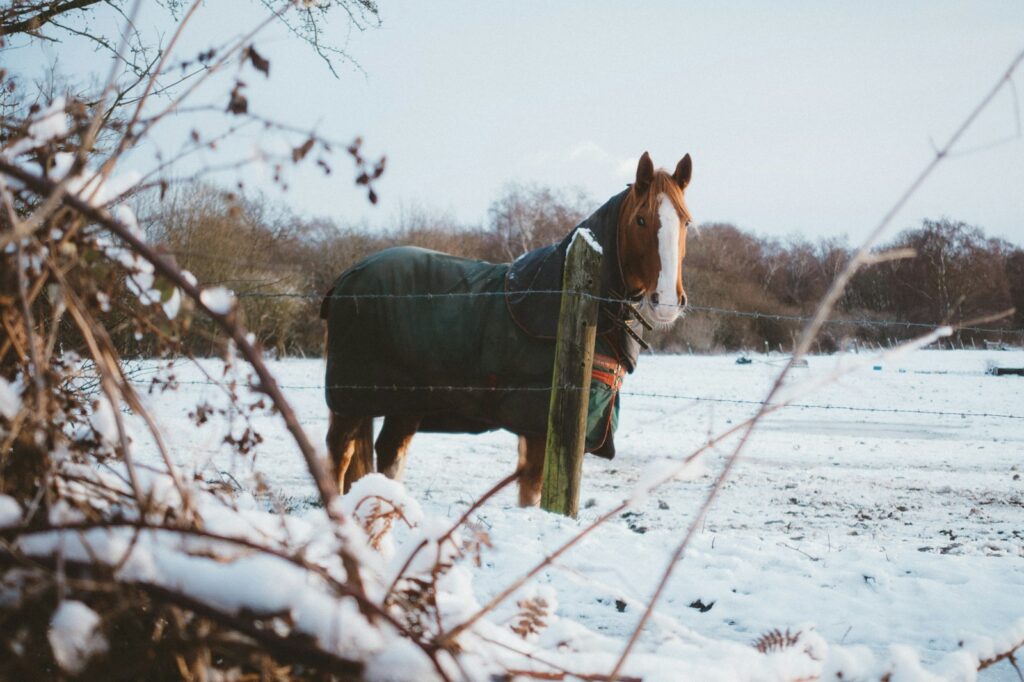
Developing a consistent post-competition reward ritual helps your horse understand that their efforts are valued and creates positive associations with competition environments. This ritual might combine several of the reward elements mentioned above in a sequence that works for your particular horse and discipline. The predictability of knowing that certain pleasant experiences always follow the demands of competition provides mental security for your horse. Over time, these positive associations can help reduce competition anxiety and build your horse’s confidence in new environments. Some riders even develop specific “celebration” rituals for particularly successful competitions, creating special memories while reinforcing the connection between excellent performance and enhanced rewards.
The art of properly rewarding your horse after competition encompasses far more than simple treats or praise—it’s a multifaceted approach to honoring your partnership and supporting your horse’s physical and mental wellbeing. By understanding your individual horse’s preferences and needs, you create a positive feedback loop that enhances future performances while strengthening your bond. Remember that the most meaningful rewards acknowledge your horse’s nature as both an athlete and a sentient being deserving of consideration and care. A thoughtfully rewarded horse becomes a willing partner who approaches competition with confidence and enthusiasm, knowing that their efforts will be recognized and appreciated by the human they trust.
